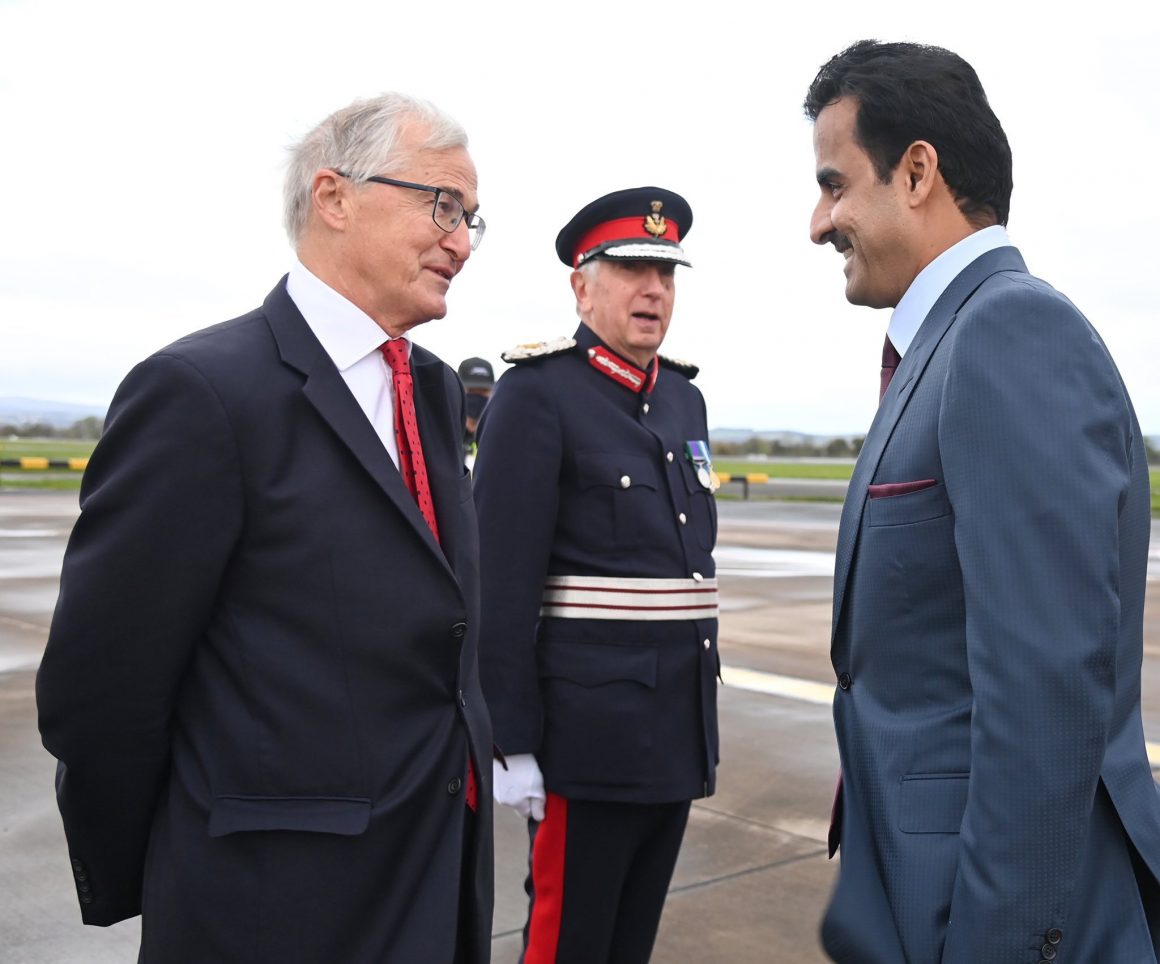In August, the UN said humans have caused irreversible damage to planet earth due to the nations’ failure in minimising fossil-fuel emissions.
Qatar’s Amir Sheikh Tamim bin Hamad Al Thani is in Glasgow on Monday to participate at the United Nation’s COP26 climate summit.
The Qatari leader is joined by a delegation of experts and activists from Qatar Foundation [QF] who are attending the global conference.
The summit brings world leaders, politicians and activists in effort to accelerate joint action under the Paris Agreement and the UN Framework Convention on Climate Change to reduce their countries’ emissions.
Officials are expected to formulate strategies to maintain global warming at 1.5 degrees celsius compared to pre-industrial levels, as stipulated in the Paris Agreement.
The summit kicked off on Sunday and is set to take place until 12 November – it was delayed by a year due to the coronavirus pandemic. The event is seen as “the last hope” in addressing an alarming climate crisis that poses a major threat to the planet.
“If we don’t act now, the Paris Agreement will be looked at in the future not as the moment humanity opened its eyes to the problem but the moment it flinched and turned away,” UK Prime Minister Boris Johnson said following a G20 meeting in Rome on Sunday.
‘Code red’: UN climate change report warns of intensifying temperatures in coming decades
In August, the UN released a report that highlighted how human activity has caused the planet’s climate to warm up at a faster rate since 2,000 years.
According to the report – approved by 195 governments and based on more than 14,000 studies – global warming will keep intensifying over the next 30 years, with just a small chance remaining to prevent more drastic consequences of the crisis.
Since the 19th century, humans have caused the planet to heat by around 1.1 degrees celsius and global warming is expected to rise to about 1.5 degrees celsius in the next two decades, with more heat-waves expected to occur in the future.
Commenting on the latest findings, UN Secretary-General Antonio Guterres said the report is “code red” for humanity.
Climate Action Plan
Reports suggest Qatar may be making an announcement at the summit regarding its partnership with Rolls-Royce to inaugurate new green engineering projects as the Gulf state pushes toward a more sustainable environment.
In the wake of calls to combat climate change, global firms and governments are shying away from funding oil, gas and coal supplies and shifting toward net-zero emissions.
On Thursday, the Gulf state launched a national Climate Change Action Plan to reduce around 25 per cent of its greenhouse gas emissions by 2030.
“Qatar considers climate change to be one of the biggest challenges of our time, which calls for urgent and dedicated measures at the local, regional and global levels,” Environment Minister Abdulla bin Abdulaziz bin Turki Al Subaie said at the presser on Thursday.
“The NCCAP is built on strategic plans for economic diversification set out in the Qatar National Vision 2030, the National Development Strategy and is aligned with United Nations Sustainable Development goals,” he added.
In 2019, greenhouse gas emissions were 109.9 MT CO2 eq. According to national figures, Qatar’s 25 per cent reduction would equal a 37 Mat CO2 eq dip by 2030. It will include various sectors such as oil and gas, power and water, transportation and construction.
This will be achieved by employing a variety of policies and levers, including activities of stakeholders-institutions, corporations, and private citizens.
“NCCAP sets a clear roadmap on how Qatar will meet its international commitments to help fight the causes and mitigate the effects manmade climate change, and in particular to reducing emissions of greenhouse gases,” said Deputy Prime Minister and Minister of Foreign Affairs Sheikh Mohammed bin Abdulrahman Al Thani at the press conference on Thursday.
“Qatar will spare no effort in achieving its desired role in facing the serious threat of climate change,” he added.
Earlier this month, Qatar established an environment and climate change ministry to tackle the global issue.
Neighbouring Gulf states have followed Qatar in initiating a net-zero emission plan.
Earlier this month, the United Arab Emirates set 2050 as its target for achieving carbon neutrality, while Saudi Arabia aims to achieve a similar plan by 2060.
Follow Doha News on Twitter, Instagram, Facebook and Youtube
